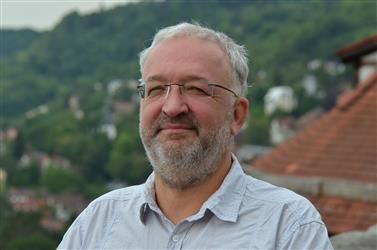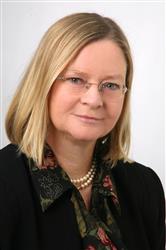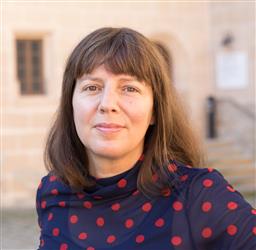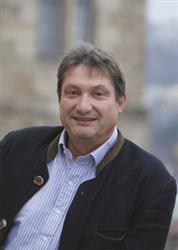ProjektSFB 1070 RessourcenKulturen
Grunddaten
Titel:
SFB 1070 RessourcenKulturen
Laufzeit:
01.07.2021 bis 30.06.2025
Abstract / Kurz- beschreibung:
Ressourcen sind das, was Gesellschaften bewegt. Menschen erzeugen ihre eigenen gesellschaftlichen Grundlagen und sorgen für deren Erhalt, Verfügbarkeit und Nutzung. Gleichzeitig verändern sie im Prozess der Inwertsetzung dieser Ressourcen ihre sozialen Beziehungen. Dies wiederum wirkt auf die Ressourcen zurück, die im Rahmen der gesellschaftlichen Reproduktion ebenfalls transformiert werden. Ressourcen sind somit einerseits Produkte gemeinschaftlichen Handelns, andererseits Quellen der Erneuerung des sozialen Lebens. Gegenstand des SFB 1070 sind diese vielschichtigen sozio-kulturellen Dynamiken im Umgang mit Ressourcen. Im Verständnis des SFB 1070 können diese Grundlagen des sozialen Lebens sowohl materielle wie immaterielle Ressourcen sein, entscheidend ist, dass die Menschen ihnen einen kulturellen Wert für ihre Form des Zusammenlebens zuschreiben. Ressourcen werden im SFB 1070 nicht isoliert betrachtet, sondern als Teil von Ressourcenkomplexen. Darunter werden Netzwerke von Dingen, Personen, Wissen und Praktiken verstanden, in denen die einzelnen Elemente durch das Wechselspiel von Intention und Materialität aufeinander wirken. Diese Ressourcenkomplexe dienen in konkreten Räumen und zu bestimmten Zeiten der Erschließung, Gewinnung und Nutzung von sozial relevanten Ressourcen. Der Umgang mit diesen Ressourcen löst bestimmte Dynamiken (Entwicklungen, Bewegungen, Bewertungen) aus, also mehrdimensionale Veränderungsprozesse, die in einem engen Wechselverhältnis mit kulturellen Vorstellungen und Praktiken stehen. Da diese kulturellen Voraussetzungen maßgeblich bestimmen, was als Ressource definiert wird und wie man mit ihr umgeht, lassen sich aus vergleichender Perspektive unterschiedliche RESSOURCENKULTUREN ausmachen. Darunter sind Modelle zu verstehen, die in diachroner Perspektive die Beziehungen zwischen kulturell geprägten Ressourcen, Umgangsformen und sozialen Ordnungen bzw. Identitäten darstellen. Sowohl die Ressourcenkomplexe als auch die RESSOURCENKULTUREN werden als Gefüge (assemblage oder agencement) verstanden, also als Netzwerke von Phänomenen unterschiedlicher Materialität und Temporalität, die das Produkt historischer Entwicklungen und ihrer Beziehungen zueinander sind.
Ziele des SFB sind die Neukonzeptualisierung eines kulturwissenschaftlichen Ressourcenbegriffs, die Erkenntnis diachroner sozio-kultureller und politischer Entwicklungen, das Verstehen der Prozesse der Raumerschließung und Identitätsbildung sowie das Erfassen der symbolischen Dimensionen von Ressourcen. Die Ziele sollen durch die enge Kooperation von Archäologien (Ur- und Frühgeschichte, Archäologie des Mittelalters, Naturwissenschaftliche Archäologie, Klassische Archäologie, Vorderasiatische Archäologie, Biblische Archäologie), Philologien (Klassische Philologie, Vorderasiatische Philologie), Geschichtswissenschaften (Alte Geschichte, Mittelaltergeschichte, Neuere Geschichte, Wirtschaftsgeschichte), Geographie (Physische Geographie und Bodenkunde), Empirische Kulturwissenschaft und Ethnologie erreicht werden.
Ziele des SFB sind die Neukonzeptualisierung eines kulturwissenschaftlichen Ressourcenbegriffs, die Erkenntnis diachroner sozio-kultureller und politischer Entwicklungen, das Verstehen der Prozesse der Raumerschließung und Identitätsbildung sowie das Erfassen der symbolischen Dimensionen von Ressourcen. Die Ziele sollen durch die enge Kooperation von Archäologien (Ur- und Frühgeschichte, Archäologie des Mittelalters, Naturwissenschaftliche Archäologie, Klassische Archäologie, Vorderasiatische Archäologie, Biblische Archäologie), Philologien (Klassische Philologie, Vorderasiatische Philologie), Geschichtswissenschaften (Alte Geschichte, Mittelaltergeschichte, Neuere Geschichte, Wirtschaftsgeschichte), Geographie (Physische Geographie und Bodenkunde), Empirische Kulturwissenschaft und Ethnologie erreicht werden.
Schlüsselwörter:
Ressourcenkomplex
Ressourcengefüge
Materialität
Temporalität
Identität
Inwertsetzung
Raumerschließung
Gefüge/Assemblage
Beteiligte Mitarbeiter/innen
Leiter/innen
Institut für Ur- und Frühgeschichte und Archäologie des Mittelalters (UFG)
Fachbereich Altertums- und Kunstwissenschaften, Philosophische Fakultät
Fachbereich Altertums- und Kunstwissenschaften, Philosophische Fakultät
SFB 1070 - RessourcenKulturen. Soziokulturelle Dynamiken im Umgang mit Ressourcen
Sonderforschungsbereiche und Transregios
Sonderforschungsbereiche und Transregios
Mathematisch-Naturwissenschaftliche Fakultät
Universität Tübingen
Universität Tübingen
Fachbereich Geowissenschaften
Mathematisch-Naturwissenschaftliche Fakultät
Mathematisch-Naturwissenschaftliche Fakultät
Forschungsbereich Geographie
Fachbereich Geowissenschaften, Mathematisch-Naturwissenschaftliche Fakultät
Fachbereich Geowissenschaften, Mathematisch-Naturwissenschaftliche Fakultät
Ansprechpartner/innen
Hardenberg, Roland
Abteilung für Ethnologie
Fachbereich Asien-Orient-Wissenschaften, Philosophische Fakultät
Fachbereich Asien-Orient-Wissenschaften, Philosophische Fakultät
SFB 1070 - RessourcenKulturen. Soziokulturelle Dynamiken im Umgang mit Ressourcen
Sonderforschungsbereiche und Transregios
Sonderforschungsbereiche und Transregios
Institut für die Kulturen des Alten Orients (IANES)
Fachbereich Altertums- und Kunstwissenschaften, Philosophische Fakultät
Fachbereich Altertums- und Kunstwissenschaften, Philosophische Fakultät
SFB 1070 - RessourcenKulturen. Soziokulturelle Dynamiken im Umgang mit Ressourcen
Sonderforschungsbereiche und Transregios
Sonderforschungsbereiche und Transregios
Abteilung für Ethnologie
Fachbereich Asien-Orient-Wissenschaften, Philosophische Fakultät
Fachbereich Asien-Orient-Wissenschaften, Philosophische Fakultät
Institut für Ur- und Frühgeschichte und Archäologie des Mittelalters (UFG)
Fachbereich Altertums- und Kunstwissenschaften, Philosophische Fakultät
Fachbereich Altertums- und Kunstwissenschaften, Philosophische Fakultät
Forschungsbereich für Urgeschichte und Naturwissenschaftliche Archäologie (UFG)
Fachbereich Geowissenschaften, Mathematisch-Naturwissenschaftliche Fakultät
Fachbereich Geowissenschaften, Mathematisch-Naturwissenschaftliche Fakultät
Mathematisch-Naturwissenschaftliche Fakultät
Universität Tübingen
Universität Tübingen
Biblisch-Archäologisches Institut
Evangelisch-Theologische Fakultät
Evangelisch-Theologische Fakultät
Forschungsbereich für Urgeschichte und Naturwissenschaftliche Archäologie (UFG)
Fachbereich Geowissenschaften, Mathematisch-Naturwissenschaftliche Fakultät
Fachbereich Geowissenschaften, Mathematisch-Naturwissenschaftliche Fakultät
Mathematisch-Naturwissenschaftliche Fakultät
Universität Tübingen
Universität Tübingen
Forschungsbereich für Urgeschichte und Naturwissenschaftliche Archäologie (UFG)
Fachbereich Geowissenschaften, Mathematisch-Naturwissenschaftliche Fakultät
Fachbereich Geowissenschaften, Mathematisch-Naturwissenschaftliche Fakultät
Fachbereich Geowissenschaften
Mathematisch-Naturwissenschaftliche Fakultät
Mathematisch-Naturwissenschaftliche Fakultät
Forschungsbereich Geographie
Fachbereich Geowissenschaften, Mathematisch-Naturwissenschaftliche Fakultät
Fachbereich Geowissenschaften, Mathematisch-Naturwissenschaftliche Fakultät
SFB 1070 - RessourcenKulturen. Soziokulturelle Dynamiken im Umgang mit Ressourcen
Sonderforschungsbereiche und Transregios
Sonderforschungsbereiche und Transregios
Institut für Ur- und Frühgeschichte und Archäologie des Mittelalters (UFG)
Fachbereich Altertums- und Kunstwissenschaften, Philosophische Fakultät
Fachbereich Altertums- und Kunstwissenschaften, Philosophische Fakultät
Institut für Ur- und Frühgeschichte und Archäologie des Mittelalters (UFG)
Fachbereich Altertums- und Kunstwissenschaften, Philosophische Fakultät
Fachbereich Altertums- und Kunstwissenschaften, Philosophische Fakultät
Institut für Geschichtliche Landeskunde und Historische Hilfswissenschaften
Fachbereich Geschichtswissenschaft, Philosophische Fakultät
Fachbereich Geschichtswissenschaft, Philosophische Fakultät
SFB 923 - Bedrohte Ordnungen
Sonderforschungsbereiche und Transregios
Sonderforschungsbereiche und Transregios
Institut für Klassische Archäologie
Fachbereich Altertums- und Kunstwissenschaften, Philosophische Fakultät
Fachbereich Altertums- und Kunstwissenschaften, Philosophische Fakultät
Institut für Ur- und Frühgeschichte und Archäologie des Mittelalters (UFG)
Fachbereich Altertums- und Kunstwissenschaften, Philosophische Fakultät
Fachbereich Altertums- und Kunstwissenschaften, Philosophische Fakultät
Institut für Klassische Archäologie
Fachbereich Altertums- und Kunstwissenschaften, Philosophische Fakultät
Fachbereich Altertums- und Kunstwissenschaften, Philosophische Fakultät
Institut für Ur- und Frühgeschichte und Archäologie des Mittelalters (UFG)
Fachbereich Altertums- und Kunstwissenschaften, Philosophische Fakultät
Fachbereich Altertums- und Kunstwissenschaften, Philosophische Fakultät
SFB 1070 - RessourcenKulturen. Soziokulturelle Dynamiken im Umgang mit Ressourcen
Sonderforschungsbereiche und Transregios
Sonderforschungsbereiche und Transregios
Fachbereich Wirtschaftswissenschaft
Wirtschafts- und Sozialwissenschaftliche Fakultät
Wirtschafts- und Sozialwissenschaftliche Fakultät
Philologisches Seminar
Fachbereich Altertums- und Kunstwissenschaften, Philosophische Fakultät
Fachbereich Altertums- und Kunstwissenschaften, Philosophische Fakultät
Seminar für Alte Geschichte
Fachbereich Geschichtswissenschaft, Philosophische Fakultät
Fachbereich Geschichtswissenschaft, Philosophische Fakultät
SFB 923 - Bedrohte Ordnungen
Sonderforschungsbereiche und Transregios
Sonderforschungsbereiche und Transregios
SFB 1070 - RessourcenKulturen. Soziokulturelle Dynamiken im Umgang mit Ressourcen
Sonderforschungsbereiche und Transregios
Sonderforschungsbereiche und Transregios
Philologisches Seminar
Fachbereich Altertums- und Kunstwissenschaften, Philosophische Fakultät
Fachbereich Altertums- und Kunstwissenschaften, Philosophische Fakultät
SFB 923 - Bedrohte Ordnungen
Sonderforschungsbereiche und Transregios
Sonderforschungsbereiche und Transregios
SFB 1070 - RessourcenKulturen. Soziokulturelle Dynamiken im Umgang mit Ressourcen
Sonderforschungsbereiche und Transregios
Sonderforschungsbereiche und Transregios
Seminar für Neuere Geschichte
Fachbereich Geschichtswissenschaft, Philosophische Fakultät
Fachbereich Geschichtswissenschaft, Philosophische Fakultät
SFB 923 - Bedrohte Ordnungen
Sonderforschungsbereiche und Transregios
Sonderforschungsbereiche und Transregios
Abteilung für Ethnologie
Fachbereich Asien-Orient-Wissenschaften, Philosophische Fakultät
Fachbereich Asien-Orient-Wissenschaften, Philosophische Fakultät
SFB 923 - Bedrohte Ordnungen
Sonderforschungsbereiche und Transregios
Sonderforschungsbereiche und Transregios
SFB 1070 - RessourcenKulturen. Soziokulturelle Dynamiken im Umgang mit Ressourcen
Sonderforschungsbereiche und Transregios
Sonderforschungsbereiche und Transregios
Institut für Empirische Kulturwissenschaft (Ludwig-Uhland-Institut) (LUI)
Fachbereich Sozialwissenschaften, Wirtschafts- und Sozialwissenschaftliche Fakultät
Fachbereich Sozialwissenschaften, Wirtschafts- und Sozialwissenschaftliche Fakultät
Schmidt, Karsten
Forschungsbereich Geographie
Fachbereich Geowissenschaften, Mathematisch-Naturwissenschaftliche Fakultät
Fachbereich Geowissenschaften, Mathematisch-Naturwissenschaftliche Fakultät
SFB 1070 - RessourcenKulturen. Soziokulturelle Dynamiken im Umgang mit Ressourcen
Sonderforschungsbereiche und Transregios
Sonderforschungsbereiche und Transregios
Digital Humanities Center
Außenstellen und sonstige zentrale Einrichtungen
Außenstellen und sonstige zentrale Einrichtungen
Seminar für Alte Geschichte
Fachbereich Geschichtswissenschaft, Philosophische Fakultät
Fachbereich Geschichtswissenschaft, Philosophische Fakultät
Lokale Einrichtungen
Institut für Ur- und Frühgeschichte und Archäologie des Mittelalters (UFG)
Fachbereich Altertums- und Kunstwissenschaften
Philosophische Fakultät
Philosophische Fakultät
Forschungsbereich für Urgeschichte und Naturwissenschaftliche Archäologie (UFG)
Fachbereich Geowissenschaften
Mathematisch-Naturwissenschaftliche Fakultät
Mathematisch-Naturwissenschaftliche Fakultät
Seminar für Neuere Geschichte
Fachbereich Geschichtswissenschaft
Philosophische Fakultät
Philosophische Fakultät
Forschungsbereich Geographie
Fachbereich Geowissenschaften
Mathematisch-Naturwissenschaftliche Fakultät
Mathematisch-Naturwissenschaftliche Fakultät
Abteilung für Ethnologie
Fachbereich Asien-Orient-Wissenschaften
Philosophische Fakultät
Philosophische Fakultät
Institut für die Kulturen des Alten Orients (IANES)
Fachbereich Altertums- und Kunstwissenschaften
Philosophische Fakultät
Philosophische Fakultät
Biblisch-Archäologisches Institut
Evangelisch-Theologische Fakultät
Universität Tübingen
Universität Tübingen
Institut für Klassische Archäologie
Fachbereich Altertums- und Kunstwissenschaften
Philosophische Fakultät
Philosophische Fakultät
Fachbereich Wirtschaftswissenschaft
Wirtschafts- und Sozialwissenschaftliche Fakultät
Universität Tübingen
Universität Tübingen
Philologisches Seminar
Fachbereich Altertums- und Kunstwissenschaften
Philosophische Fakultät
Philosophische Fakultät
Institut für Empirische Kulturwissenschaft (Ludwig-Uhland-Institut) (LUI)
Fachbereich Sozialwissenschaften
Wirtschafts- und Sozialwissenschaftliche Fakultät
Wirtschafts- und Sozialwissenschaftliche Fakultät
Geldgeber
Bonn, Nordrhein-Westfalen, Deutschland












